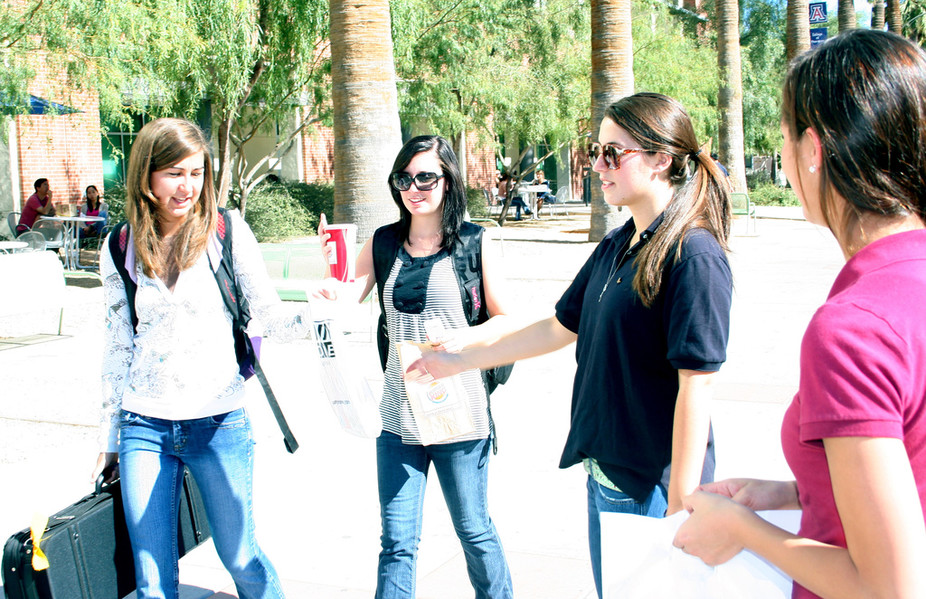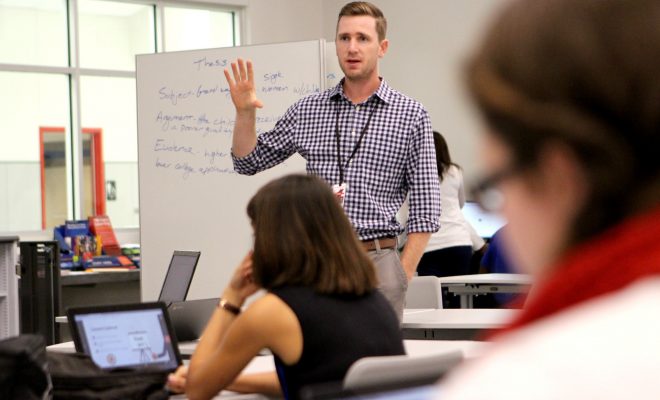Explainer: how campus policies limit free speech

David Hudson, Vanderbilt University
Colleges and universities are supposed to be places where freedom of expression flourishes. Sadly, that is not the case. At a recent debate on the Yale University campus, 66 percent of the attendees supported a proposition that “free speech is threatened.”
Places of higher learning seem more interested in “safe spaces” rather than in freedom of expression. Several incidents across campuses illustrate this. Recently, at Emory, students complained after they found chalk messages scrawled around campus voicing support for Donald J. Trump.
Last year at the University of Ottawa, a yoga class designed for handicapped people was suspended because the student federation thought it was a form of “cultural appropriation.” And at Smith College a student sit-in blocked media from entering unless reporters agreed to explicitly state support for the movement in their coverage.
Illustrating how contentious the debates have become, two of the most respected American comedians, Chris Rock and Jerry Seinfeld, said that colleges are eager “not to offend anybody.” Some students at a private Ivy League school even signed a petition to repeal the First Amendment.
Ideally, colleges and universities would foster an exchange of competing and controversial ideas. The reality is much different. Some colleges and universities limit discourse by silencing speech that might offend others through so-called speech codes and free speech zones.
In studying free expression issues for more than 20 years, I strongly believe such polices have led to a chilling effect on speech. They also have led to a mentality where students do not wish or want to face an opposing viewpoint.
So, what are these policies?
Combating hateful speech
First, let’s look at speech codes on campuses. A speech code refers to a set of provisions or regulations that limit certain types of offensive or harassing speech.
Colleges and universities usually don’t call their regulations speech codes. Instead, they refer to them as anti-harassment policies.
It was in the 1980s and 1990s that more than 300 colleges passed these policies to combat hateful speech. Schools tried to address harassment of gays and lesbians, women and members of other ethnic groups. The policies were further enforced when white students wore blackface for sorority and fraternity parties. Many schools were trying to achieve more diversity in their student bodies.
The intent was good. Many of these policies sought to prohibit speech or conduct that created an intimidating or harassing environment on the basis of race, sex, religion, or other criteria.
However, the results were not good for the First Amendment and freedom of speech.
Policies at the University of Michigan and the University of Wisconsin were invalidated on First Amendment free speech grounds.

At the University of Wisconsin, speech codes were adopted following racial incidents. JanetandPhil, CC BY-NC-ND
At the University of Wisconsin, for example, university officials adopted the speech code after several racially insensitive displays at fraternities. For example, one fraternity held a “slave auction.” A student newspaper and several others challenged the policy on the ground that the policies infringed on academic freedom and stifled some legitimate speech. In UWM Post v. Board of Regents of University of Wisconsin (1991), a federal district court struck down the policy, writing:
The suppression of speech, even where the speech’s content appears to have little value and great costs, amounts to governmental thought control.
Similar problems occurred at Michigan, which had its share of disturbing racially charged incidents. At Michigan, a student disc jockey allowed racist jokes to be aired. University officials reacted with a speech code. The problem was that officials applied the policy to chill the speech of students engaged in classroom discussion or academic research.
A federal district court judge invalidated the policy in Doe v. University of Michigan (1989), writing:
While the Court is sympathetic to the University’s obligation to ensure equal educational opportunities for all of its students, such efforts must not be at the expense of free speech.
The problem was that these codes were not drafted with sufficient precision. Courts ruled that these polices were either too broad or too vague.
Overbreadth and vagueness problems
A policy is too broad if it prohibits speech that ought to be protected in addition to speech that can be prohibited. In legal terms, this is called “overbreadth”. For example, a policy that prohibits “offensive and annoying” speech sweeps too broadly and prohibits lawful expression.
A policy is too vague if a person has to guess at its meaning. Vagueness is rooted in the notion that it is fundamentally unfair to punish someone when they did not know that their speech violated the policy.
For example, the University of Michigan had a policy that prohibited “stigmatizing or victimizing” individuals or groups on the basis of race, ethnicity, religion, sex, sexual orientation, creed, national origin, ancestry, age, marital status, handicap or Vietnam-era veteran status.
In Doe v. University of Michigan, a federal district court judge ruled the policy too vague, writing:
Students of common understanding were necessarily forced to guess at whether a comment about a controversial issue would later be found to be sanctionable under the Policy.
Controversies still abound over speech codes at colleges and universities. The Foundation for Individual Rights in Education (FIRE) regularly challenges policies that it believes run afoul of the First Amendment.
In its annual report, the group contends that nearly half of the speech codes at 440 colleges infringe on First Amendment free speech rights. FIRE contends in its report that “any speech code in force at a public university is extremely vulnerable to a constitutional challenge.”
Restricting where students can have free speech
In addition, many colleges and universities have free speech zones. Under these policies, people can speak at places of higher learning in only certain, specific locations or zones.

Free speech zones limit expression to a few places on campus. Penn State, CC BY-NC
While there are remnants of these policies from the 1960s, they grew in number in the late 1990s and early 2000s as a way for administrators to deal with controversial expression.
These policies may have a seductive appeal for administrators, as they claim to advance the cause of free speech. But, free speech zones often limit speech by relegating expression to just a few locations. For example, some colleges began by having only two or three free speech zones on campus.
The idea of zoning speech is not unique to colleges and universities. Government officials have sought to diminish the impact of different types of expression by zoning adult-oriented expression, antiabortion protestors and political demonstrators outside political conventions.
In a particularly egregious example, a student at Modesto Junior College in California named Robert Van Tuinen was prohibited from handing out copies of the United States Constitution on September 17, 2013 – the anniversary of the signing of the Constitution.
Van Tuinen was informed that he could get permission to distribute the Constitution if he preregistered for time in the “free speech zone.” But later,
Van Tuinen was told by an administrator that he would have to wait, possibly until the next month.
In the words of First Amendment expert Charles Haynes, “the entire campus should be a free speech zone.” In other words, the default position of school administrators should be to allow speech, not limit it.
Zoning speech is troubling, particularly when it reduces the overall amount of speech on campus. And many free speech experts view the idea of a free speech zone as “moronic and oxymoronic.”
College or university campuses should be a place where free speech not only survives but thrives.
![]()
David Hudson, Adjunct Professor of Law, Vanderbilt University
This article was originally published on The Conversation. Read the original article.






